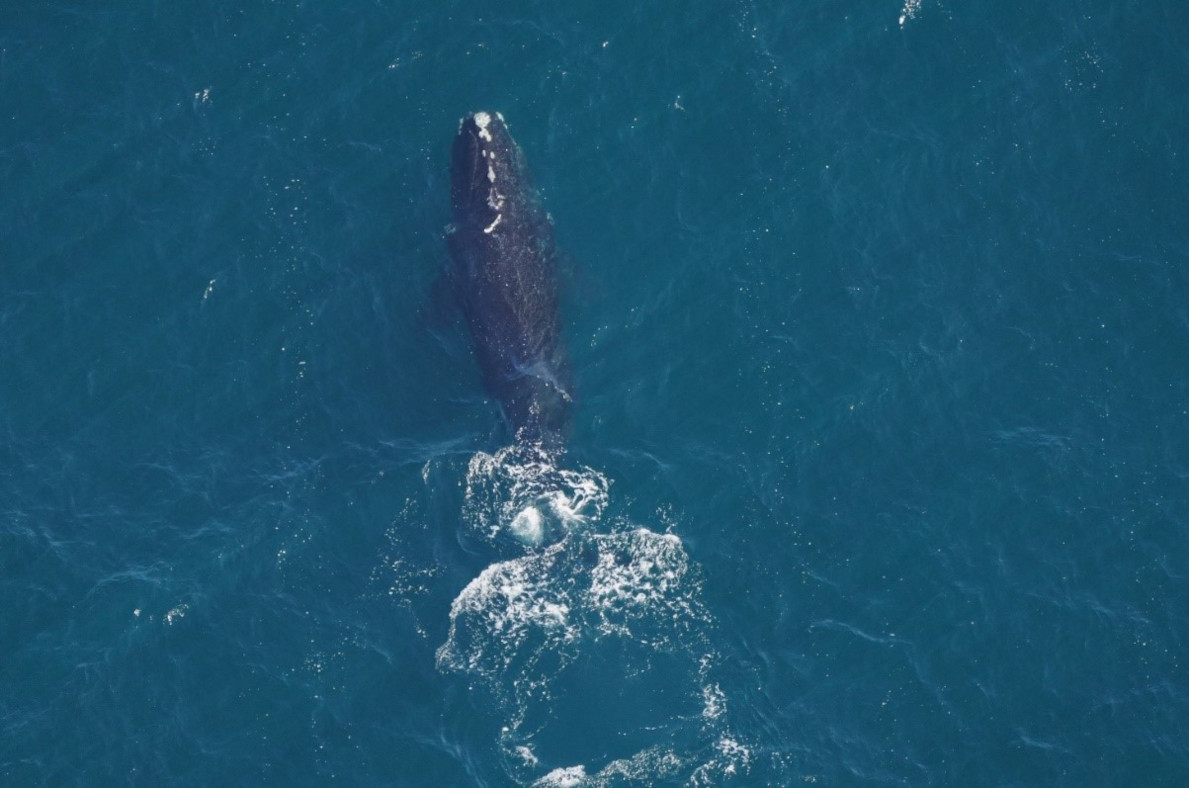
BOSTON, MASS. (Sept. 19, 2023) – The New England Aquarium is reacting to historic federal funding intended to protect North Atlantic right whales, a critically endangered species with less than 350 individuals remaining.
The National Oceanic and Atmospheric Administration (NOAA) announced earlier this week that it received $82 million in funding from the Inflation Reduction Act, calling it the largest climate and conservation investment in U.S. history. The funding will be divided into categories including vessel strike risk reduction, wildlife monitoring and modeling of habitat use, and ropeless or “on-demand” fishing, aiming to support continued development and implementation of solutions to address the two leading causes of right whales’ decline: entanglements in fishing gear and vessel strikes.
“The threat of extinction for North Atlantic right whales means bold actions are needed to ensure this species survives. We applaud the Biden-Harris Administration for making these funds available for such a crucial cause,” said Dr. Jessica Redfern, Associate Vice President of Ocean Conservation Science in the Aquarium’s Anderson Cabot Center for Ocean Life.
The North Atlantic right whale’s population has been in decline since 2011, amid increasing threats from fishing gear entanglements, vessel strikes, ocean noise, and climate change, stressors that research has shown are not only impacting survival but also females’ ability to produce calves. The New England Aquarium has one of the longest-running right whale research programs in the world, extensively studying the animals for more than 40 years. Scientists focus on solutions-based work, collaborating with fishermen on new techniques to reduce deadly entanglements in fishing gear, conducting spatial analyses to assess risk from vessels, facilitating communication across the maritime industry to reduce vessel strikes, and working with lawmakers locally, nationally, and internationally to develop science-based protections for the whales.
“Scientists and conservationists have been working toward solutions to protect North Atlantic right whales for decades. While there have been many promising advancements in technology, we have yet to reverse the decline of the species. Both private and public support is needed to ensure right whale protection measures and monitoring efforts continue to improve, as the whales adjust their migration patterns amid the impacts of climate change, prey availability, and increasing human use of the ocean,” said Aquarium Senior Scientist Philip Hamilton.
Right whales travel hundreds of miles while searching for tiny planktonic crustaceans called copepods, which they feed on in large volumes. Warming waters in the northern Atlantic Ocean have led to shifts in right whale habitat use, with the animals adjusting where they feed off the northeast U.S. and Canada.
NOAA has been working to develop vessel speed restrictions that better protect North Atlantic right whales while ensuring both the species and economy thrive. The Aquarium has contributed the best-available scientific research and analysis to help advance the revised rule, as science-based policies have proven to effectively contribute to the recovery of struggling marine mammal populations.
“We’ve testified before Congress in support of necessary measures to protect this species—measures that we acknowledge will require generational transformations in industry practice and effective partnerships to drive shared solutions. As we await NOAA’s release of a final vessel speed rule, this funding can help chart an essential path forward for both the recovery of the critically endangered North Atlantic right whale and continued responsible ocean use,” Sarah Reiter, the Aquarium’s Director of Ocean Policy.
MEDIA CONTACT: Pam Bechtold Snyder, psnyder@neaq.org; 617-686-5068
